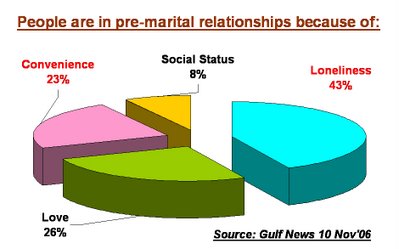 Today being World Obesity Day, I’m sure there would be some kind of opinions voiced from anyone who wishes to offer their pennies on the subject! Especially when UAE has a substantial number of residents who are already on their way to obesity! (Perhaps on my part I already gave my pennies away… see here and here and here).
Today being World Obesity Day, I’m sure there would be some kind of opinions voiced from anyone who wishes to offer their pennies on the subject! Especially when UAE has a substantial number of residents who are already on their way to obesity! (Perhaps on my part I already gave my pennies away… see here and here and here).However, the question that bothers me continuously is: Are we really serious enough on this issue? Almost on every second day we see some article in the newspapers talking about the subject, or see some dietician or a health official commenting on the issue with some authority! But any kind of concrete solutions are almost none! No wonder that 20% of high school children are facing an obese future in UAE (based on a
Gulf news perhaps attempted for the umpteenth time to put some sense among the masses – by targeting school kids as the most important segment to be prevented from this pandemic this time. You can see the coverage here, here, here and here.
Here are some important facts and information tid-bits from Gulf News:
1. 50% of school children eat fruit and vegetable at least once a day. These are the ones who have been taught the benefits of healthy eating.
2. 12% of kids aged 12-16 yrs are already obese in UAE, while 20% + are under risk of being obese.
3. Boys are more obese than girls; however the trend reverses for overweight children.
4. 20% eat shawarmas, biryani, carbonated drinks or high fat food at least twice a day!
5. 18% eat fast food at least thrice a week!
6. 25% of children are found obese in
7. 17% of kids aged 2-19 yrs are obese and 34% are overweight in
8. 5.6% of young adults in
9. Suggested Top ten brain foods for youngsters: Fish; Nuts and seeds; Soya products; Pulses; Wholegrains; Broccoli; Organic eggs; Cheese; Fruits; Ostrich meat.


